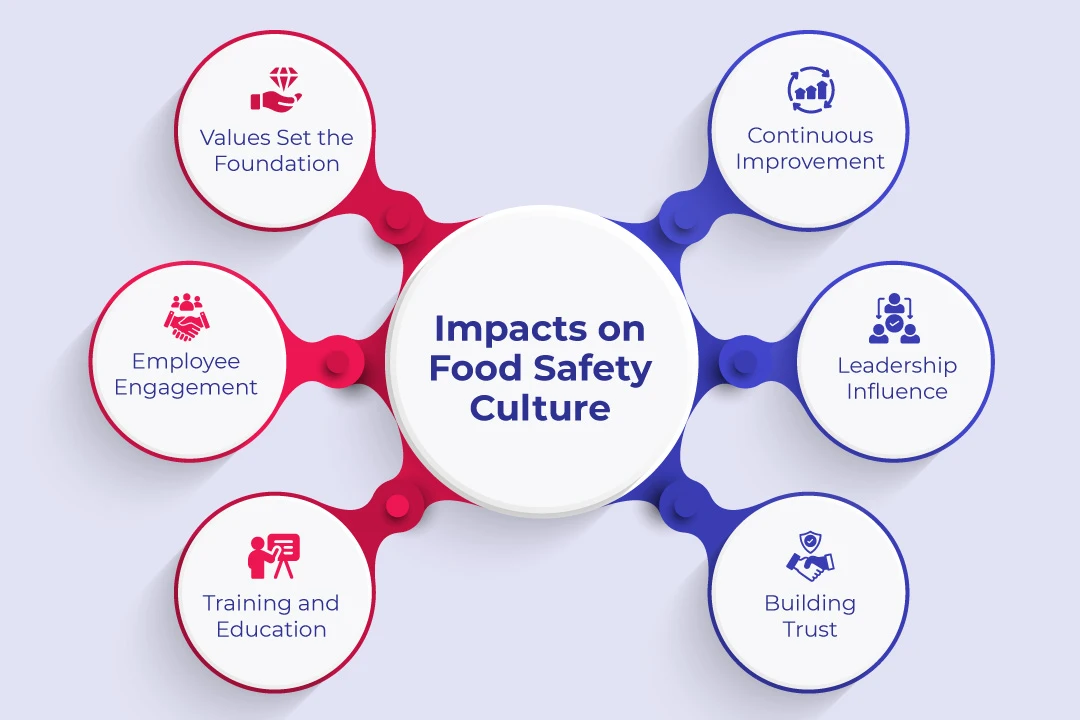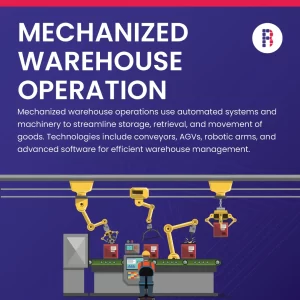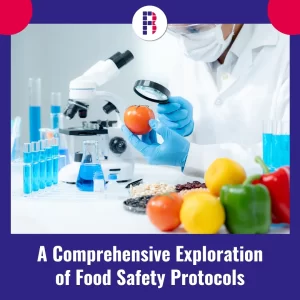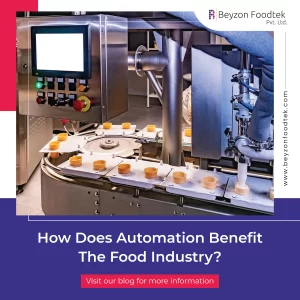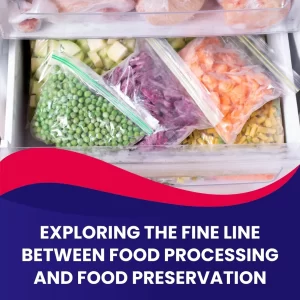Introduction
Food safety is of paramount importance in any organization involved in the production, distribution, or service of food. Establishing a strong food safety culture is essential to ensure that all employees, from top management to front-line staff, prioritize and uphold food safety practices. One key factor that significantly influences the food safety culture of an organization is its core values. This blog explores the ways in which an organization’s values impact its food safety culture and highlights the importance of aligning values with food safety objectives.
What is Food Safety Culture?
Food safety culture in an organization refers to the collective attitudes, beliefs, behaviors, and values regarding food safety that are shared among its employees at all levels. It represents the overall mindset and approach towards food safety within the organization and influences how individuals and teams prioritize, handle, and manage food safety practices. A positive food safety culture is essential to ensuring that food safety measures are consistently followed, leading to reduced risks of foodborne illnesses and contamination incidents.
Impacts on Food Safety Culture:
- Values Set the Foundation:
An organization’s values act as the bedrock on which its culture is built. When food safety is embraced as a core value, it becomes an intrinsic part of the organization’s identity and guides decision-making at every level. Whether it is a commitment to customer safety or a dedication to excellence, when food safety is at the forefront of an organization’s values, it shapes the attitudes and behaviors of its employees.
- Employee Engagement:
Values that prioritize food safety foster a sense of responsibility and accountability among employees. When food safety is ingrained in the company’s values, employees are more likely to be engaged and actively participate in maintaining high food safety standards. They understand the importance of their roles in the overall safety of the food supply chain and feel empowered to raise concerns or report issues when necessary.
- Training and Education:
Organizations with strong food safety values invest in comprehensive training and education programs for their employees. By prioritizing food safety in training initiatives, organizations can ensure that every team member has a clear understanding of the protocols and best practices required to maintain a safe food environment. This education helps to minimize risks and avoid potential food safety incidents.
- Continuous Improvement:
Values emphasizing continuous improvement encourage organizations to regularly review and enhance their food safety measures. This includes updating standard operating procedures, adopting the latest technologies, and staying up-to-date with food safety regulations. A culture that values continuous improvement demonstrates a commitment to learning from mistakes and striving for excellence.
- Leadership Influence:
Leaders play a pivotal role in shaping an organization’s culture. When top management demonstrates a genuine commitment to food safety as a core value, it sets a powerful example for all employees. Leaders who consistently prioritize food safety are more likely to influence their teams to do the same, creating a positive ripple effect throughout the organization.
- Building Trust:
Food safety is directly linked to public health and consumer trust. Organizations that prioritize food safety values demonstrate their dedication to ensuring the safety and well-being of their customers. This, in turn, fosters trust and loyalty among consumers, which is vital for a successful and sustainable business.
Conclusion:
An organization’s values are a driving force behind its food safety culture. When food safety is integrated as a core value, it becomes an integral part of the organization’s identity and influences the behaviors and decisions of its employees. By prioritizing food safety in values, organizations can create a robust food safety culture that promotes continuous improvement, employee engagement, and consumer trust. A strong food safety culture not only protects consumers but also benefits the organization by enhancing its reputation and long-term success in the food industry.
